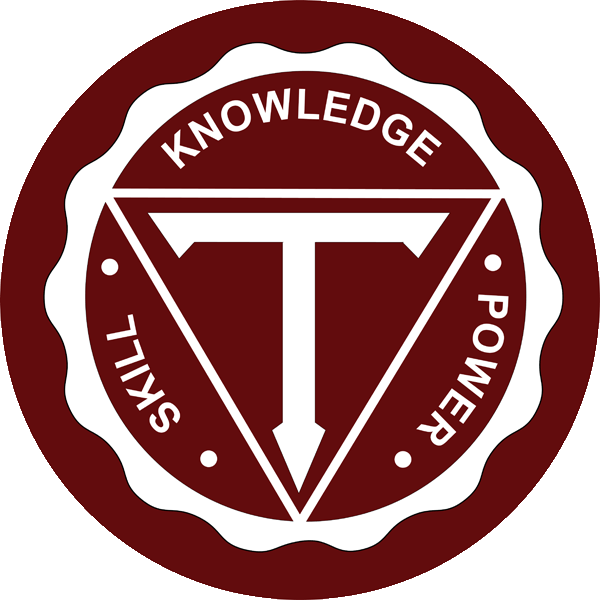


Hutchinson Central Technical High School
Course Syllabus
Course Name: AP Biology
Instructor: Elizabeth. Brunn Contact Time: 9:42-10:23 Phone Ext: 1414
Grading Policy
Grades for this course are determined by the following factors:
1) Tests (30%): There will be 2-4 tests per marking period. The tests will consist of multiple choice, short answer, true/false, and essay questions. The questions will be derived from previous regents exams.
2) Quizzes (20%): They will generally be given after the completion of a topic and may or may not be announced ahead of time. Homework is assigned regularly and should take approximately 30 minutes to complete.
3) Projects/Lab (25%): There will be 8-10 labs a quarter. Projects will be assigned every quarter.
4) Classwork/Homework (25%): Students are responsible for coming to class and actively participating in class activities and discussions. Homework is assigned regularly and should take approximately 30-60 minutes to complete.
DEADLINES ARE DEADLINES!!! IF WORK IS NOT HANDED IN ON TIME YOU WILL BE PENALIZED.
Homework Policy
Homework will be assigned throughout the week. Sometimes homework will be collected and other times it will be reviewed in class to supplement the lecture. You are expected to study every night.
Test Policy
Tests:
• Your attendance on test days is required! Unit tests will be administered approximately every three to four weeks at the conclusion of the unit.
• If a situation arises where you must miss a test, you must discuss the situation with Mrs. Brunn as soon as possible. In a case where a make up test is agreed upon, the test must be taken within one business day of the scheduled in-class exam, and Mrs. Brunn reserves the right to change the format and difficulty of the exam.
• Tests will be designed to test and challenge your understanding of the course material.
• Tests will be given in class, and students will be given the class period for a test.
• In order to protect the integrity of the tests, a strict procedure will be followed. At any time on the day of the test, a student may only have the items necessary for the test (pen, pencil, eraser) at their seat. All personal belongings must be left at the front of the room. Students may not have any of the following items at their seats at any time during the test: purses, cell phones, iPods, headphones, earphones, smart watches, any other type of electronic device, etc.
Quiz Policy
There will be quizzes given throughout the quarter. They may be announced or unannounced.
Projects
Lab: Labs will take place 3 class periods a cycle. All lab write-ups are required to be submitted in the correct format. We will meet in the computer lab on some days and projects may take place on lab days.
Projects: There will be at least one major project every quarter and several mini research projects. Deadlines are strictly enforced. Plan your time efficiently.
Plagiarism will not be tolerated. Any student caught cheating on a test or plagiarizing research projects, will receive a zero.
Course Outline
The four big ideas of this course:
• Big idea 1: Evolution: The process of evolution drives the diversity and unity of life.
• Big idea 2: Energetics: Biological systems use energy and molecular building blocks to grow, to reproduce and maintain dynamic homeostasis.
• Big idea 3: Information Storage and Transmission: Living systems store, retrieve, transmit and respond to information essential to life processes.
• Big idea 4: Systems Interactions: Biological systems interact, and these systems and their interactions exhibit complex properties.
Course Units:
1. Chemistry of Life
2. Cell Structure and Function
3. Cellular Energetics
4. Cell Communication
5. Heredity
6. Gene Expression and Regulation
7. Natural Selection
8. Ecology
Course Objectives:
1. Gain knowledge and understanding of biology with respect to:
• molecules associated with living things
• cell structure and function
• genetics and the transfer of information
• evolution and natural history
• interactions between humans and the environment
2. To introduce students to critical thinking skills in applying biological information in real life situations
3. To develop skills in reading scientific texts and peer reviewed journal articles as a way to understand current advances in biology
4. To increase knowledge of the scientific method as a process of improving our understanding of the natural world.
Student Responsibilities When Absent from Class:
• Get notes from a classmate
• Get handouts from class folder
• Get information about any announcements made (quizzes, homework, etc.) from a classmate
Tips for Success:
1. Do not underestimate the amount of TIME required for success in this class!
2. Read the textbook and take notes on the reading.
3. Attend and be attentive in class.
4. Be sure you understand the material. (Do not just memorize!)
5. Be organized! There are a lot of handouts, so be sure you have a binder to keep track of them all.
6. If you have questions, ASK!